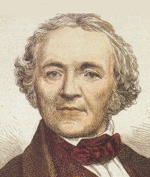Method
History
The study of history rests primarily on the correct use of source documents. This in turn requires examination of the nature and authenticity of those documents, for which see our Philology section. Once that work has been accomplished, by the investigator or by someone else, the work of historical interpretation can begin. And that work of interpretation too has its proper methods, to which we devote this section. Is there a science of history? Or is it all just hot air, the venting of one or another predisposition?
Science not only seeks to understand, it is continually open to advances in its understanding. As between two accounts of something, we need to judge which is more likely to be correct. Inferior readings of the evidence must be replaced by more adequate ones. If, collectively and over time, we can distinguish better from worse interpretations, we can move from a worse to a better understanding of the past. That is the the science of history. It is never complete; its conclusions are always open to reconsideration or to new evidence. But it can move forward, so something more adequate than it was before.
History aims to discover the truth about the past, and guidelines for those engaged in that search have been discovered. Some basic requirements (objectivity and honesty), and some generally helpful ideas (the earliest sources are likely to be better; original documents are preferable to interpretations), though already known in antiquity, are now associated with the name of Leopold von Ranke. Insofar as it can be done, this is how to recover the past, in Ranke's famous phrase, "as it really was." To those basics, we have added a few observations of our own.
Method: Ranke's Maxims
Technique: Outline of Procedure
Difficulties: The Problematic Context
Errors: Don't Get Suckered Out
Ethics: History at the Service of Ideology
The Last Horizon: Comparative HistoryAs with literature, so with history: the more you know, the more you know.
All materials on this site are Copyright © 1993 or subsequently by the Warring States Project or by individual authors
